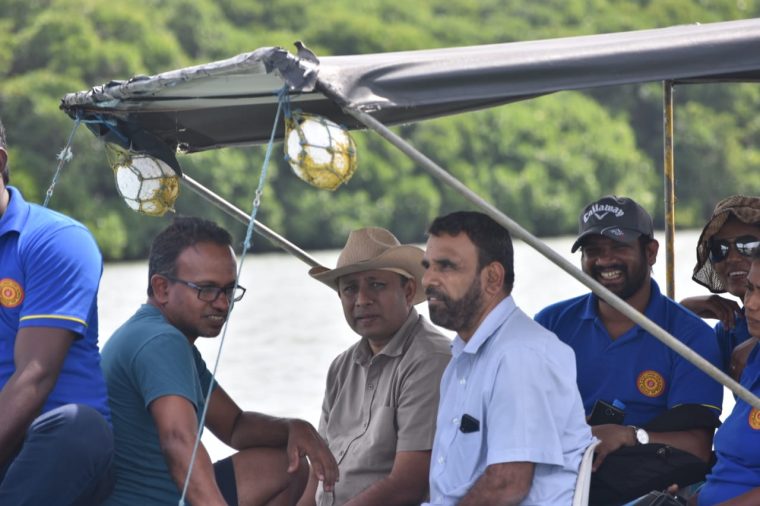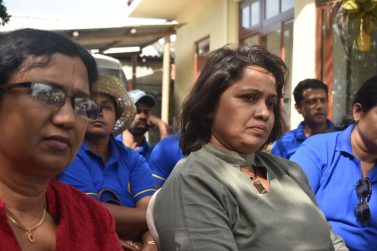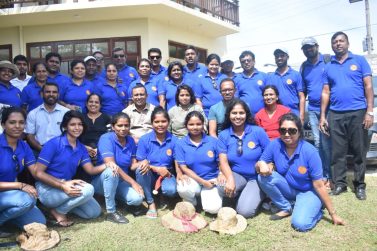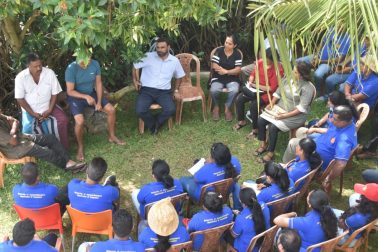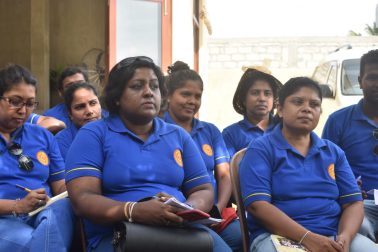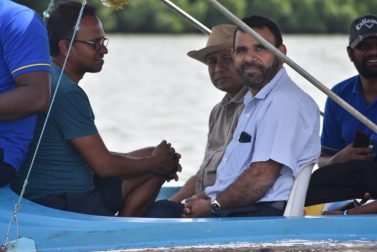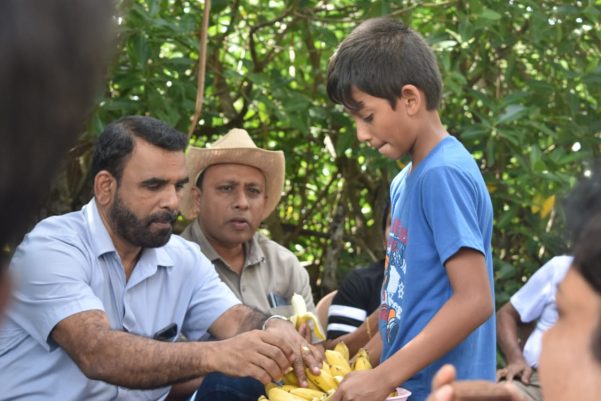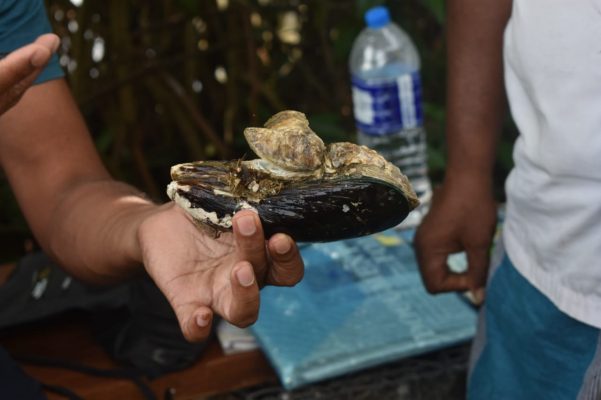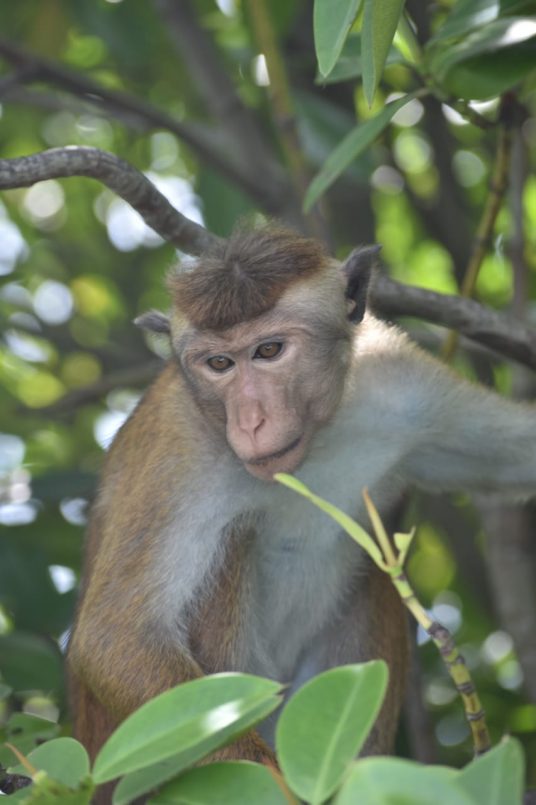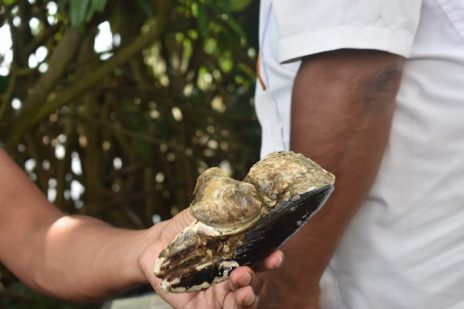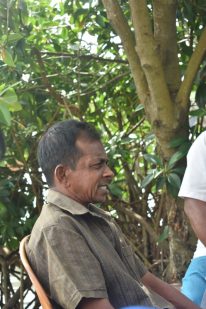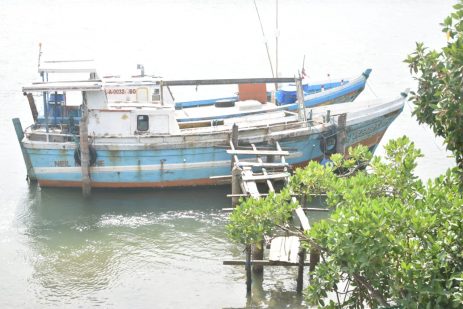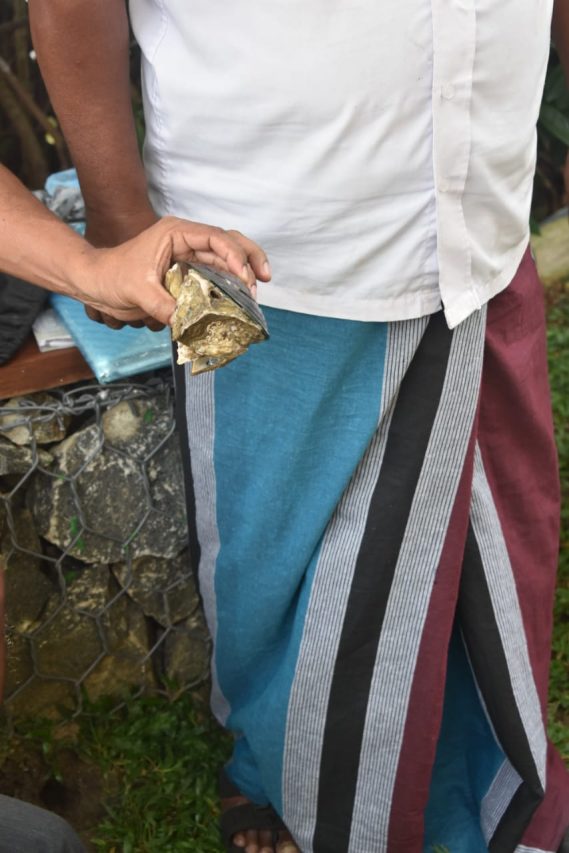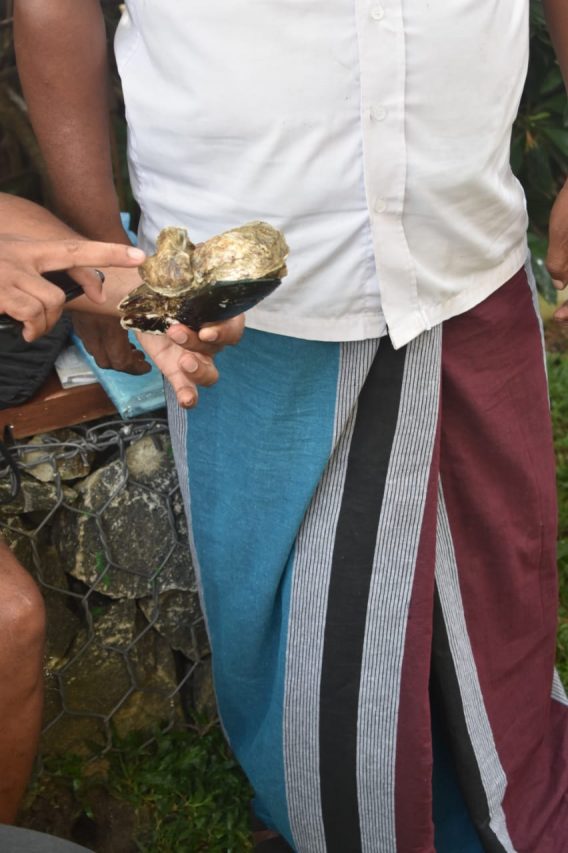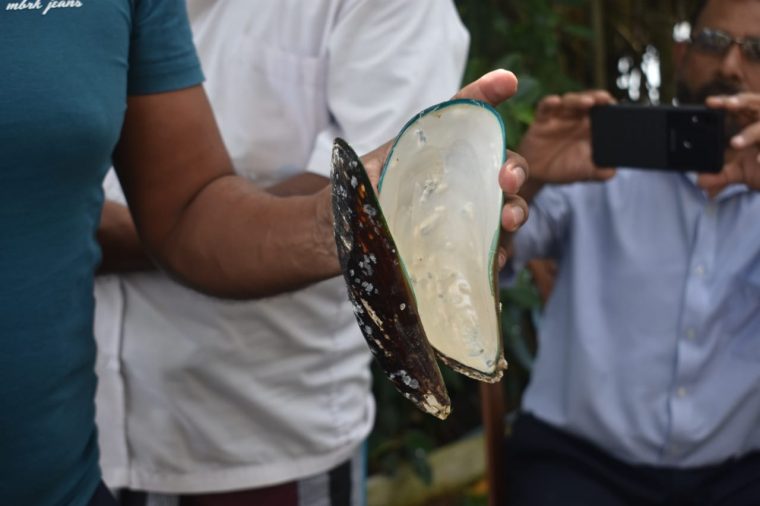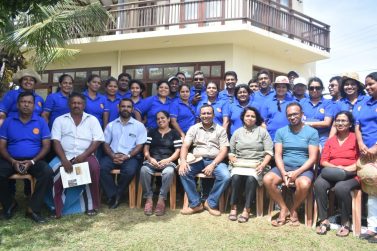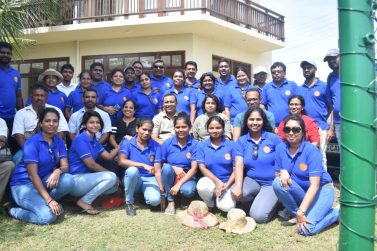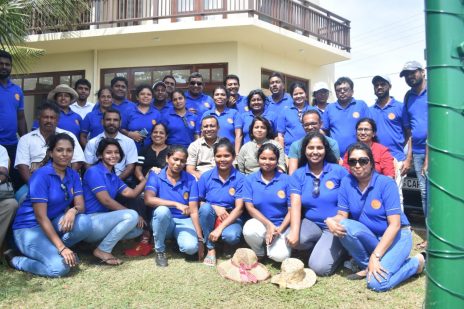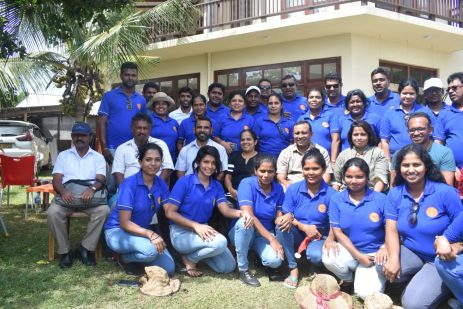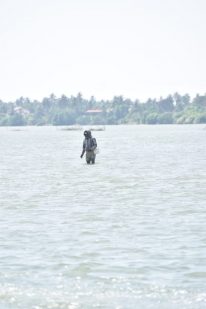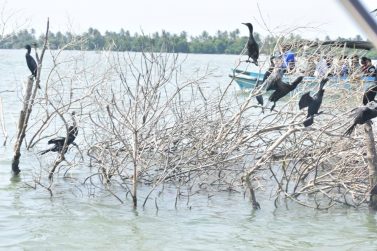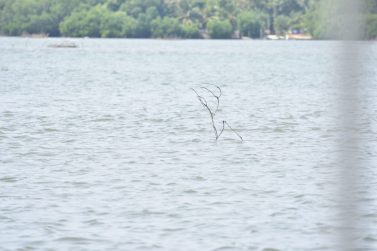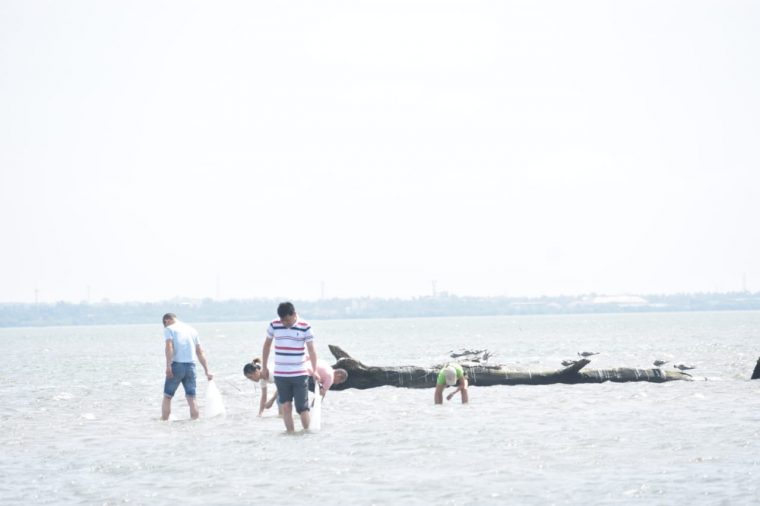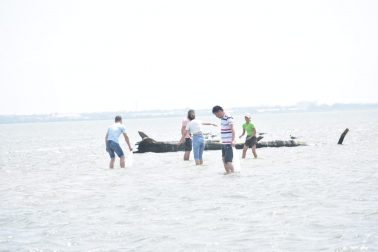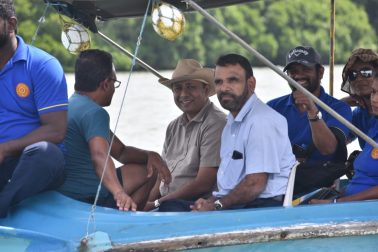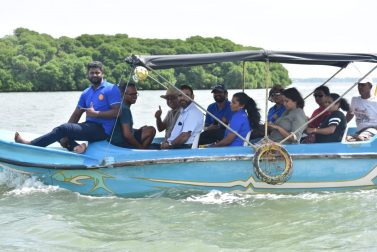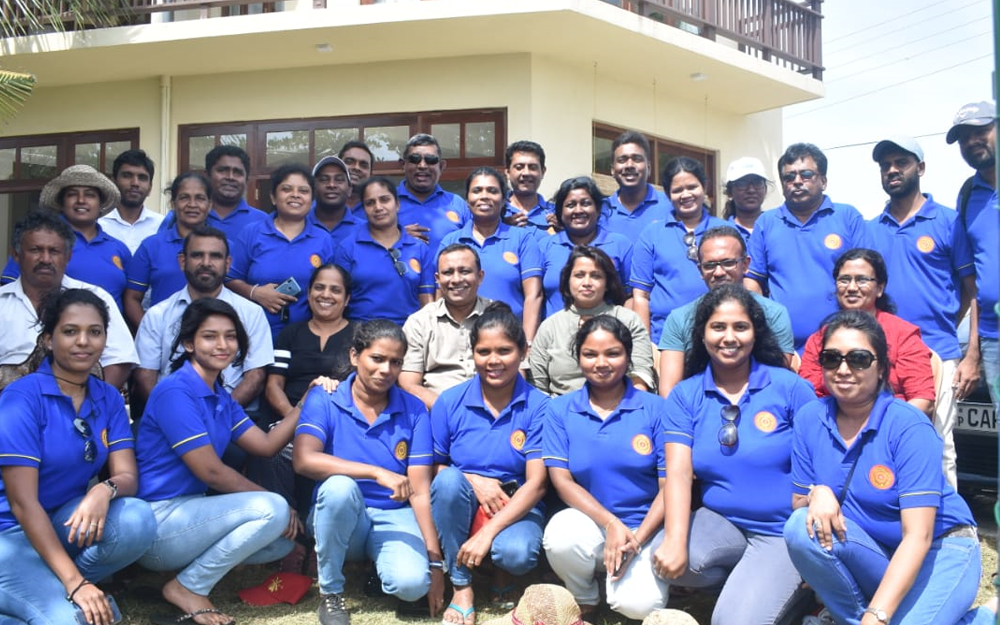
Student of the Diploma in Development Policy Analysis (DPA) conducted by the Department of Economics, Faculty of Humanities & Social Sciences University of Sri Jayewardenepura engaged in a field learning event in the fishing communities of Negombo Lagoon on the 29th of December 2019. Prof. Shirantha Heenkenda; Dean of the Faculty, Academic and Non-academic staff of staff the department, Nalaka Siriwardena; Program Director, Child Fund Sri Lanka, Namal Fernando; Activist and a community-based researcher, Joseph Fernando; Founder member of the Negombo Lagoon Fisheries Management Authority and an experienced Kattu Dal Fisher, and students of the DPA 2019 batch participated for the field visit.
Overarching Intention of the field exposure event is to learn on the practical experience related to community involvement of natural resource management and environmental protection as well as the role of the local governance in strengthening those processes. In related to the same, students were exposed to a more than 150 years old fisheries management approach that exists to date in managing Kattu Dal Shrimp fishery in the Negombo Lagoon. In addition, they also got an opportunity to learn about the ecosystem of Negombo Lagoon and Muthurajawela in terms of the importance of it environmentally, economically and recreationally. This exposure also involved a trip in the Lagoon which gave them a deeper understanding of the ecology and the hydrology of the Lagoon as well and the threats posed to it with the human-induced activities.
The main highlights of the discussion were on the value of the Negombo Lagoon and Muthurajawella wetland and one ecosystem and enormous contribution it made to the economy and the environment. It further highlighted the current status of this system and environmental destruction caused by humans such as releasing large amounts of both degradable and undegradable waste, cutting down the mangrove vegetation and filling the shallow areas as well. The discussion further expanded on the process of establishing the Negombo Lagoon Fisheries Management Authority under the 1996 # 2 Fisheries Management Act, the first of its kind in Sri Lanka. Participants received the detail insights on the successes and failures of that process and the current status of it. The potential of the lagoon in terms of culture fishery such as mussels and oysters was also discussed from a practical perspective and the need for more scientific inputs and extension support from the government also highlighted. Lastly, the facilitators discussed the current challenges in waste management and the inefficient processes by the local government authorities in ensuring proper collection of waste and lack of a regulatory mechanism in releasing wastewater to the Lagoon, especially by the fish processing centers run at economic scale.
A special thanks go to Mr. Nalaka Siriwardena, Mr. Namal Fernando and Mr. Joseph Fernando and Western Provincial Council for their valuable support and for the financial contribution respectively to success in this field event.

